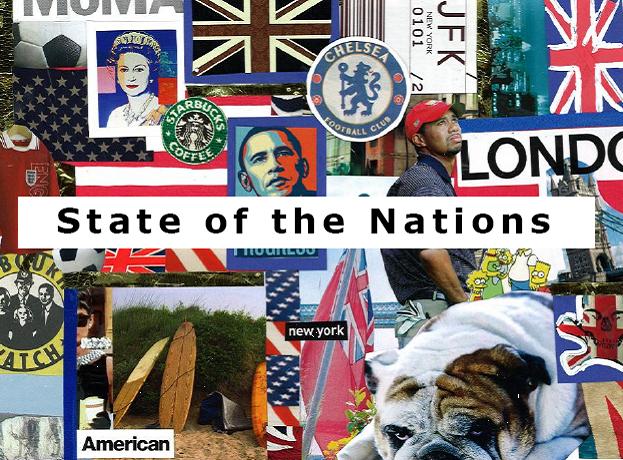 So...you were so liberal you decided not to vote for stodgy old Labour and instead put in a vote for the fresh faced Lib Dems? Oops, you've just elected the Conservatives. Welcome to Hell, you granola-crunching, organic, free-range, bio-diesel swilling piece of biodegradable yuppie trash. This whole thing is giving me bad Bush v Gore 2000predecessor, squared off against a middle-of-the-road conservative, and just enough lefties defected to the third party (an owl-faced man named Ralph Nadir who represented the Green Party) as a matter of principle to give the conservative the win. If you have read a newspaper in the last ten years, you can see that those idealistic liberals really proved a point, just not the one they were hoping for.
So...you were so liberal you decided not to vote for stodgy old Labour and instead put in a vote for the fresh faced Lib Dems? Oops, you've just elected the Conservatives. Welcome to Hell, you granola-crunching, organic, free-range, bio-diesel swilling piece of biodegradable yuppie trash. This whole thing is giving me bad Bush v Gore 2000predecessor, squared off against a middle-of-the-road conservative, and just enough lefties defected to the third party (an owl-faced man named Ralph Nadir who represented the Green Party) as a matter of principle to give the conservative the win. If you have read a newspaper in the last ten years, you can see that those idealistic liberals really proved a point, just not the one they were hoping for.Unlike what you may have learned when you were twelve, the point of voting isn't to win, it's not to lose. No candidate is going to be everything you want in a politician. In order to get elected, he or she has to represent, or seem to represent, a lot of different people, including, and this one is above all, themselves. This means that our job as voters is to choose the best of a pretty raunchy bunch of characters, whether they are named Brown, Cameron, Clegg, Bush, Gore or Obama. Of course, you can complain, but bear in mind that some groups of voters, like American blacks, had to spend about two hundred years in the land of the free before they got their 'first black president', which, ironically, was what Toni Morrison called Bill Clinton. I suppose, then, that the real lesson to be learned from elections on both sides of the pond is that, unless a third party could actually run away with the election, voting for them is just going to hurt your cause. flashbacks. As you may or may not recall, Al Gore, a slightly 'boring' candidate widely considered to be more of a supporting actor to a much more popular and charismatic, but wildly untrustworthy,
n n n n n n n n n n n n n n n
As alliances go, it's about as unholy as caviar and ketchup. At each other's throats two weeks ago, backslapping their way into Number 10 today: whatever the fallout in the future, Britain's newest comedy duo have, for now at least, completely reconfigured the political landscape of our country. Liberal Democrats are supposed to be dwell in the tree-hugging realms of the left. Conservatives stack their chips in the gated communities on the right. Now the stockbroker and the hippy have joined hands and frolicked into power together, with Jeeves and Wooster gleefully at the helm. Who knew?
On closer analysis, it shouldn't really be the surprise that it is. Grassroots Liberal Democrats may be up in arms - and the steady flow of supporters defecting to Labour suggests trouble ahead - but, as we've discussed before, behind the headline-grabbing single-issue policies, the manifestos of both parties are dominated by a shared distrust of big government; their central philosophies are, in fact, perhaps the closest in parliament. However, what interests me more is the personal side. Why was Clegg, an expensively-educated child of privilege, far happier to go into an alliance with David Cameron, an, er, expensively-educated child of privilege, than he was with Brown, the clunking Scottish social democrat?
Forgive my cycnicism - but what this smacks of to me is that peculiarly British quality of 'being clubbable'. Cameron and Clegg ooze charm. Watching them together is a lesson in the smooth social confidence afforded by an expensive education in the UK - and in many ways, this is the grease that runs the country. We may not have lords and ladies any more, but the upper reaches of British society - be it judges, doctors or politicians - are still dominated by children of privelege, and it is in this very world that our new joint-leaders were born to thrive. It's one big club, and both Cameron and Clegg are perfectly schooled in shaking the right hands, playing by the rules and tipping the doorman on the way out. You can picture them discussing cricket, wine and their long-established ancestral roots; Brown, meanwhile, loved football, porridge and the finer points of Keynesian economics. He never stood a chance; he didn't have any 'chat'. There may have their differences, but when it came to the crunch, Clegg went with what he knew: family, class and the old school tie.




No comments:
Post a Comment